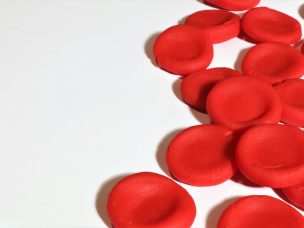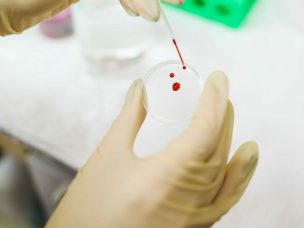This study will investigate the use of bitopertin, an oral GlyT1 glycine transporter inhibitor, in treating steroid-refractory Diamond–Blackfan anemia, which is characterized by bone marrow failure and often exhibits poor response to systemic corticosteroids. Bitopertin aims to rebalance hemoglobin synthesis by slowing heme production.
Diamond–Blackfan anemia (DBA) is described as a bone marrow failure disorder. This inherited condition includes macrocytic anemia, reticulocytopenia, and bone marrow erythroid hypoplasia. While systemic corticosteroids are administered to patients with DBA, approximately half of the patients fail to respond to the treatment.
Bitopertin is an investigational oral GlyT1 glycine transporter inhibitor that slows heme production and promotes the rebalancing of hemoglobin synthesis. This phase I/II dose-escalation study, which is open for enrollment, will be conducted in steroid-refractory DBA patients to evaluate the efficacy and safety profile of bitopertin. The study protocol was presented as a poster at the 65th American Society of Hematology Annual Meeting and Exposition.
Bitopertin and Diamond–Blackfan Anemia
DBA is considered a prototypic haploinsufficient ribosomopathy. The genes involved in DBA tend to encode ribosomal proteins insufficiently, which leads to decreased ribosomal biogenesis. This results in an imbalance between the production of heme and globin, causing premature cessation of erythroid differentiation. Bitopertin rescues erythropoiesis by slowing down heme production and attaining a balance between heme and globin syntheses.
Erythroid Response
The erythroid response in this study is defined as a rise in hemoglobin by ≥1.5 g/dL and/or a decline in units of packed red blood cell transfusions by ≥50% from the baseline levels.
Study Setting and Eligibility Criteria
This study will be conducted in Bethesda, Maryland, at the National Institutes of Health (NIH) Clinical Center. The eligibility criteria include that the participants (a) must be ≥18 years of age; (b) should not have significant comorbidities; (c) should not be receiving DBA-directed therapies, including growth factors and systemic steroids; and (d) should have relapsed, steroid-refractory, or steroid-intolerant disease.
Study Protocol and Drug Dosage
The subjects will be administered oral bitopertin daily, with the dose increasing each month (5 mg, 10 mg, 20 mg, 40 mg, and 60 mg). The total follow-up duration is 32 weeks, which includes a minimum follow-up of 16 weeks at the final dosage of bitopertin. Extended therapy for 3 more years will be allowed for patients who demonstrate an erythroid response.
Primary and Secondary Outcomes
The primary outcome measure of the study is erythroid response. The secondary endpoints are safety profile during therapy, health-related quality of life, relapse, survival, supporting laboratory studies, and clonal evaluation.
Source
Young, D. (2023, December 9). A phase I/II, Intra-Patient Dose-Escalation study of Bitopertin, a selective inhibitor of GLYT1 and HEME synthesis, for Steroid-Refractory Diamond-Blackfan anemia. https://ash.confex.com/ash/2023/webprogram/Paper173821.html










